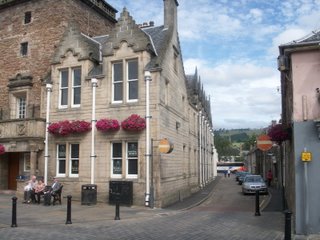
Work in progress....

Quakers In The Mid 1750's there were 2 or 3 Quakers.By 1836 there was still no meeting house.
Bareans Old wifes listened to Mrs Buchan!
Cameronians ( Sometimes known as Mountaineers) They would fence the table for communion.
Jacobites meeting in Wrights hall Doing a work on Muirton extinct since 1790's
Mission station in South St 1857
Relief Church Canal Street
Relief Church South Street
Free Church St Stephens -Gaelic Canal street then Paradise place
TCF Paradise Place
Roman Catholic Melville Street
Evangelical Union High Street - Now Perth Theatre
Gospel Hall South Street now on western edge
East Church
West Church
Middle Church
North Church
St Pauls
St Leonards Free Victoria Street
ST Andrews Parish Church
St Stephens Parish
St Marks Church -Letham
St Mary Magdalene RC
St Ninians- Cathedral
UPC
New Lights (Aikman)
Old lights ( W Taylor) Small Chapel Kinoull Street
Wilsons Chuch Associated Presbterian High Street
North Church
Glassite High Street
Congregational ( Mill Street Independent Church)
Free West Church moved to Tay Street (St Matthews)
Baptist 1 now Perth Baptist Church -Western edge
Baptist 2 West Church joined Baptist 1
Knox Free Church
Elim Penticostal Priness Street
Wesleyan
United Free Church
Free Presbyterian Church near Bus station
St Lukes - came from the original Secession
Episcapalian Church St Johns
St Johns Kirk
Society of Balchristies
Salvation Army
Perth Riverside Church
Gateway Community Church
Oasis Church- Station Hotel
Church of the Nazarene- Trinity Church
Grace Baptist Church Glover Street
Bible Baptist Church Kinnoull Street
Pre reformation Orders Dominican, Carmelites ( Whitefriars) Carthusian, Franciscan ( Greyfriars)
Please add the missing ones in the comments...Past or present.
If you are interested here is a past post about ...
Burgher /Antiburgher


